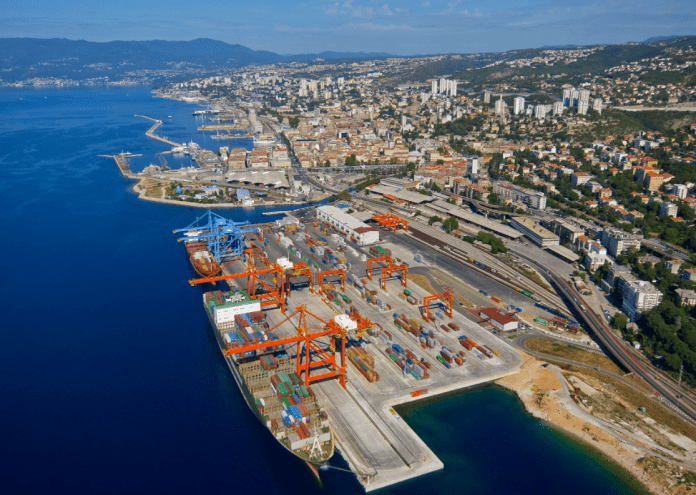APM Terminals (APMT) and Energia Naturalis (ENNA) Group have signed a 50-year concession agreement to jointly develop and operate a new box terminal in Rijeka, Croatia.
The two partners will design, construct and operate the new container terminal on the North Adriatic coast of Croatia and APMT will have 51% of the stake, while the Croatian investment company ENNEA will possess the remaining 49% of the Rijeka box terminal.
The new facility is projected to be built in two phases. The assignment of the agreement, which took place on 5 November in a ceremony, attended by Croatian Prime Minister Andrej Plenković and Minster of Sea, Transport and Infrastructure Oleg Butković, marks the beginning of the construction phase. The terminal is expected to become operational within 3.5 years when its first phase will be completed.
The second phase will follow and after its completion, both phases together will have a projected throughput of 1,055,000TEU.
The new terminal will have a berth length of 680 meters and will be equipped with four ship-to-shore (STS) cranes which are currently the largest available in the market according to a statement, making Rijeka Gateway capable of serving vessels of up to 24,000TEU.
“APM Terminals and Maersk have been strong business partners for ENNA who share our values and our business vision. We firmly believe that our joint venture of investment into the Zagreb Deep Sea container terminal in Rijeka will lay the foundations for further growth and sustainability of the port operations and logistics business in Rijeka and in the Republic of Croatia”, commented Pavao Vujnovac, President of the Board, ENNA Group.

The new terminal will also dispose of an efficient rail connection with the hinterland, linking Rijeka with the rest of Croatia as well as with neighbouring markets. “This will help make Rijeka Gateway uniquely positioned to become a gateway for the wider region,” said APMT in its announcement.
“Rijeka Gateway and the modernisation of the railway infrastructure is Croatia’s largest national project that will connect the Port of Rijeka with continental Croatia and Central European countries, facilitating business opportunities and fast economic growth not only in logistics but in all services and all industries,” noted Vujnovac.
After the completion of Phase 1, Rijeka Gateway is projected to employ a significant number of staff directly, in addition to other positions created indirectly in connection with terminal operations, while the total estimated number of employees should increase further when Phase 2 is completed, according to a statement.







